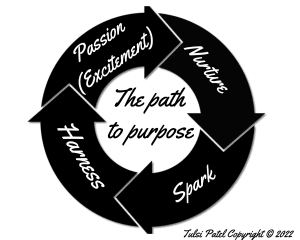Having trouble committing to your writing goals is normal, at least one can be honest about their skillset here without having identity issues, they can confidently say that they’re no goalkeeper.
I just could not help myself to start like that, I have a tendency to play with my goal fish before eating into the subject, you just never know what tomorrow may bring. I don’t know if my “goal” fish will make it to retirement at the riverbank.
Sorry for taking you on that boat ride, let’s return to the subject, having trouble committing to your writing goals? This is very common with debut writers, a writer who is starting a career in writing, writers of all genres even bloggers, or writers who are dealing with writer’s block. Hopefully, these sure-fire ways will bring you back to your writing goals in no time. Let us look at ways I have once handled having trouble committing to my writing goals.

1) Give your writing session space in the agenda
Freelance writers get paid by the hour, full-time content writers get paid a full-time wage to write for a company (taking into consideration an hourly rate), traditional publishers give the author an advance for the royalties they predict the book would make but if you are going on no wage and just faith, time is time, time is money, time can be man’s last breath, time, yes, no one can give you back that time, that is why for writers starting a writing journey, having faith in their project and not getting paid an advance is a tough challenge to take on. This is the test of either breaking or making an author or writer. I can honestly put my hand on heart and say that this challenge over time makes the most disciplined and talented writers. Why? Because they do it anyway, no matter what! If we’re talking about any artist here, in whatever field it may be, this is really what makes an artist, actually, in any profession, if you do it anyway always, then I can say that you have met the beginning of your purpose (who knows), by this time one would be clear on their life purpose even.
Giving your writing session space in the agenda makes one commit to the goal they have set out, that agenda will go on, the days go on but those sessions that were put in there eventually become a bit of a pressure over time especially when one isn’t complying to doing what was meant to be done for that session. It is almost a constant reminder that time is going and by now one could have been already on the next chapters, ahead, and most important of all, it could have been published by now.
A personal tip: I have faced days where I have written loads, days where I procrastinated, days went idle, days of doubt, days of losing faith, every day, that you might have had in your life, in some way I had it, even that depressing day. Guess what? What is a challenge without overcoming it? What is talent if one never “beats” the demons of those phases? – The beauty of this is that one won’t ever know what they wanted if they didn’t want it through all the highs and lows. This is the “course” of self-mastery. T. Dench Patel, 18:08, 20 March 2022
 2) Set a deadline
2) Set a deadline
Imagine if we took our time to do what we wanted to when we wanted to? Some call this financial freedom, I call it, money can’t buy passion – T. Dench Patel, 18:18 20 March 2022. It’s the here and the now, it’s the present that tells one who they are right now in reality the past is irrelevant. One can become the president of the United States of America and then an author from one day to the next. Professions get replaced, people get replaced, one dies another is born and so if passion isn’t nurtured and harnessed all the ideas, the spark and the excitement dies. Writing towards a deadline keeps that spark alive, writing is nurtured ever so often to reach that deadline, and all the ideas that come forth are harnessed only to ignite more passion into that project which turns the wheel over and over again, i.e., nurture, spark, harness = passion (excitement) and repeat until it is finished. Maybe you can call this Tulsi’s theory created for the purpose of this study (Copyright © 2022) where one can identify their purpose by observing what they do consistently even if it means doing it anyway.

3) Start with the interesting parts

Start with the interesting parts even if you don’t have everything figured out, and here’s the reality, no writer will ever have everything figured out and neither does a doctor… Welcome to the human world. This one really worked wonders when it came to Tulsi’s theory, try it when having trouble committing to your writing goals. Starting with the spark stages sometimes is all a writer or an author needs to spin the wheel or get onto it again, as I describe above. When having trouble committing to your writing goal try starting the writing sessions with the parts that most inspire you, the reason why you want to write what you chose, or the vision you have behind the entire project, picture it like a movie, and feel the scenes.
4) Visualise the completion and achieving the result (motivation)
Have you ever heard business owners refer to a project close to their heart as a baby? When one visualises and feels the emotions that come with it it’s almost like dreaming, right? If one is a parent, they will understand this, as they raise their children and see them grow, it gives most parents a dream. I am not a parent, but I feel it when I work on a project close to my heart, and similarly, I see this feeling with parents. Everyone wants that it will turn out great, everyone wants the best for something they’ve worked hard to create or grow, everyone wants what is close to their heart to have a great ending, why? We visualise, we visualise it, we see the happy ending. I know, what some of you here might say, “Take your head out of the sand, or take your head out of the clouds,” but positivity isn’t a myth, what you think of something you are usually right about, i.e., you are right either way by saying it’s going to turn out good or it’s going to turn out bad. There can be these words, “I am going to write. I am not going to let this feeling beat me today,” “I am going to pass on today, the words aren’t coming to me,” I mean at least there isn’t giving up in those words, but what if one gives up, “I am not going to try anymore.” See that, that is the end, no hope in there at least the other phrases always have potential, there is no ending to the goal there. Lack of motivation is why most people are having trouble committing to their writing goals, lack of motivation is why most people are not consistent. Visualising the completion and achieving the end result, feeling into that daily helps to create a spark with the project, a connection to it on a consistent level, the energy rises the more one feels into it, just helps the cycle continue in Tulsi’s Theory observed in the diagram above.
5) Connect with people, other writers, spend time outdoors or socialise
You must be wondering how connecting with people, other writers, spending time outdoors, or socialising connects to having trouble committing to your writing goals. A writer often spends a lot of time in their head, with the characters, the story, writing, some days with a block, some days procrastinating, that it is important to connect with other people or writers, socialise so that new ideas can come in. Even spending time outdoors leaves space for fresh perspectives, creativity, and also being in the present reality. One never knows the plot that can come from just relaxing and disconnecting this is one way to take pressure off yourself.
Hey, what crime do trees have to commit to getting the death penalty?… Treeson. What happens to batteries when they commit a crime? They get charged. What happens to writers who commit? They feel happy and simile. Okay, I must admit the last question was very bad.
Drop us a comment below and follow us or share this article on Instagram, Tiktok, Facebook.
You can also have a look at the Having trouble committing to your writing goals? short video.
In the next article, I will be going into literary genres.
Yours sincerely
T. Dench Patel










